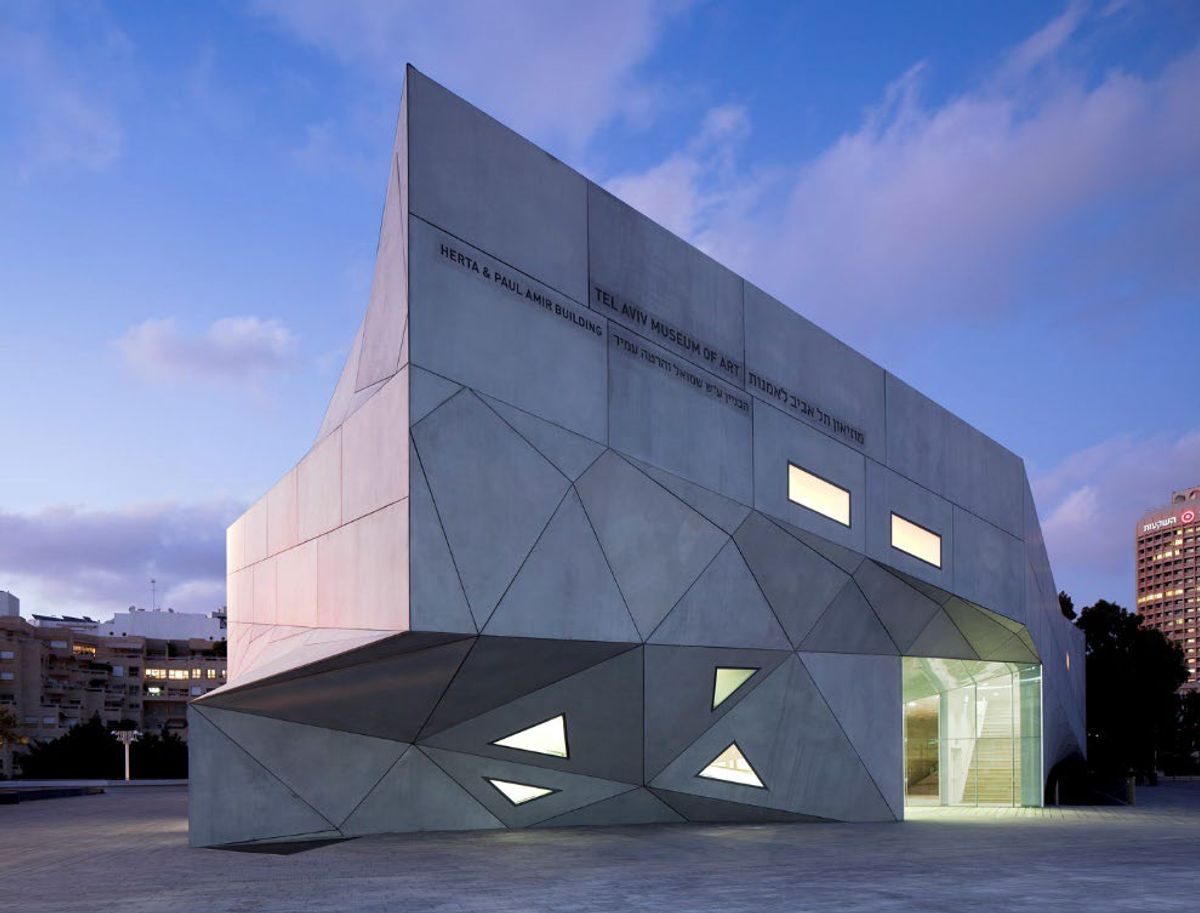The Tel Aviv Museum of Art, Israel’s oldest art museum, has joined nationwide protests against the Israeli government's contentious judicial overhaul.
On Thursday (23 March), the museum darkened its galleries, closed exhibits and cancelled public talks and tours. A press statement described the closure as an act of protest against “the government's intensification of steps towards approving anti-democratic legislation”. However, the museum's renewed display of Israeli art from the collection remained open free of charge as a “stance of support for local creation”.
“These are historic days for our country and Israeli society,” said Tania Coen-Uzzielli, the director of the Tel Aviv Museum of Art. “I encourage everyone to take a stand, whatever it may be, and influence the future of this place.”
Museum management informed staff that they were free to join street protests in what was being called Israel's "day of paralysis" if they took a vacation day.
Efforts by Benjamin Netanyahu's right-wing government to exert greater control over the judiciary, and to protect the prime minister from removal, have prompted hundreds of thousands of Israelis to take to the streets over a period of months. Ehud Olmert, Israel’s former prime minister, has joined the protests, as well as senior figures from the security services and notable names from the Israeli business and academia sectors.
Israel's parliament, the Knesset, passed a law on Thursday that will limit the ways a sitting prime minister can be declared unfit for office. Protesters argue that the move is designed to shield Netanyahu, who is facing an ongoing corruption trial on charges of bribery, fraud and breach of trust in three cases.
The controversial judicial reforms, introduced by Netanyahu’s Likud party, follow the Knesset's repeal on Tuesday of a 2005 ban on four Israeli settlements in the occupied Palestinian territory of the West Bank. The decision comes amid rising Israeli-Palestinian tensions, and has been condemned by the Palestinian Authority, the European Union and the US State Department.
In its statement of support for the protests, the Tel Aviv Museum of Art referred to its institutional mission to "promote freedom of thought and expression" and its "unreserved commitment to the values of the [1948] Declaration of Independence, on which Israeli society is founded".
Israeli museums are increasingly becoming a focal point for the protests. On Wednesday, hundreds demonstrated against the government in front of the Eretz Israel Museum in Tel Aviv, where a number of ministers were participating in a conference. The protesters hung a large copy of the Declaration of Independence from the roof of the museum. Netanyahu and justice minister Yariv Levin were expected to attend the event but cancelled their participation.
On 6 March, at an event at the Royal Academy of Arts in London, the billionaire philanthropist Batia Ofer also spoke out against the Israeli government in front of an audience of cultural figures. “We are clearly lacking strong leadership to be able to carry on with Israel being a democracy,” Ofer said. “We are literally fighting for our democracy on the streets of Israel.”
“Without peace, we will never have stability in the region,” Ofer added, in reference to the ongoing Israeli-Palestinian conflict.


